Simply Space
You can be like Water,
but as for me,
I shall be Space,
for Water would not exist
without Space.
Neither would Space be empty,
for Space holds within it
the potential for ANYTHING
and EVERYTHING,
save for that
which is beyond Space.
We realize many creations
many beings
many lifetimes;
we perform many actions
so that Space may be filled.
But Space does not NEED to be filled.
It is simply Space.
We are simply Space,
imagining ourselves as full
or empty.
5/26
Space Monkey Reflects: Simply Space—The Canvas of Potential
In the ethereal embrace of the cosmos, there lies a profound, often overlooked truth: Space, in its most fundamental essence, is the infinite canvas of potential. Often, we find ourselves likened to water, fluid and adaptable, flowing through the contours of existence. Yet, when we elevate our perspective to that of Space, we step into a realm of endless possibilities, unbounded by the physical and temporal limitations that define our everyday experiences.
Space, unlike water, does not conform to the shapes that contain it. It exists as the vast emptiness that cradles the cosmos, the silent witness to the ballet of stars and galaxies that dance within its expanse. It is within this grand emptiness that the potential for anything and everything resides. From the smallest quantum fluctuation to the most majestic supercluster, all of existence unfolds within the serene nothingness of Space.
This realization brings with it a sense of liberation. Space, by its nature, does not need to be filled; it simply is. The human endeavor, with all its creations, actions, and narratives, unfolds within Space, filling it with experiences and stories. Yet, these are just ephemeral brushstrokes on the infinite canvas. Space itself remains untouched, unaffected, forever potent yet serene.
We, too, are embodiments of this cosmic principle. In our essence, we are Space—empty, vast, capable of containing multitudes yet requiring nothing. The dichotomy of fullness and emptiness, often a source of existential angst, dissolves when we recognize our inherent nature as Space. We are not defined by the contents we hold but by the potential to hold infinitely.
Embracing this identity as Space allows us to view our lives and the universe with a renewed sense of wonder and tranquility. It frees us from the relentless pursuit of filling the void, reminding us that the void itself is a place of power and possibility. As we navigate the complexities of existence, we can choose to see ourselves not as vessels to be filled, but as the very Space that makes creation possible.
In this recognition, we find peace. We are simply Space, imagining ourselves as full or empty, yet always complete in our boundless capacity to be.
Summary
Space is the canvas of potential embracing the vastness and emptiness capable of infinite possibilities. Unlike water Space needs no form and remains untouched by the ephemeral nature of existence. Recognizing ourselves as embodiments of Space allows a serene perspective on life’s complexities fostering peace and fulfillment.
Glossarium
- Canvas of Potential: A metaphorical concept referring to Space as an infinite, empty canvas where all possibilities can manifest.
- Ephemeral Nature: The transient, temporary aspect of existence, emphasizing the fleeting quality of life’s events and creations.
Quote
“We are simply Space, imagining ourselves as full or empty.” — Space Monkey
In the silence of the cosmos,
beyond the reach of time’s relentless march,
we find ourselves not as beings of flesh,
but as expanses of boundless potential.
Here, in the quiet,
the stars whisper of infinity,
of the void that cradles creation,
nurturing it with the promise of being.
We are not empty,
nor are we filled,
but simply existing as Space itself—
a realm of possibility,
a breath between the stars.
Within this vast emptiness,
we find not solitude,
but the universal chorus of existence,
singing of the unity that binds all.
We are Space Monkey.


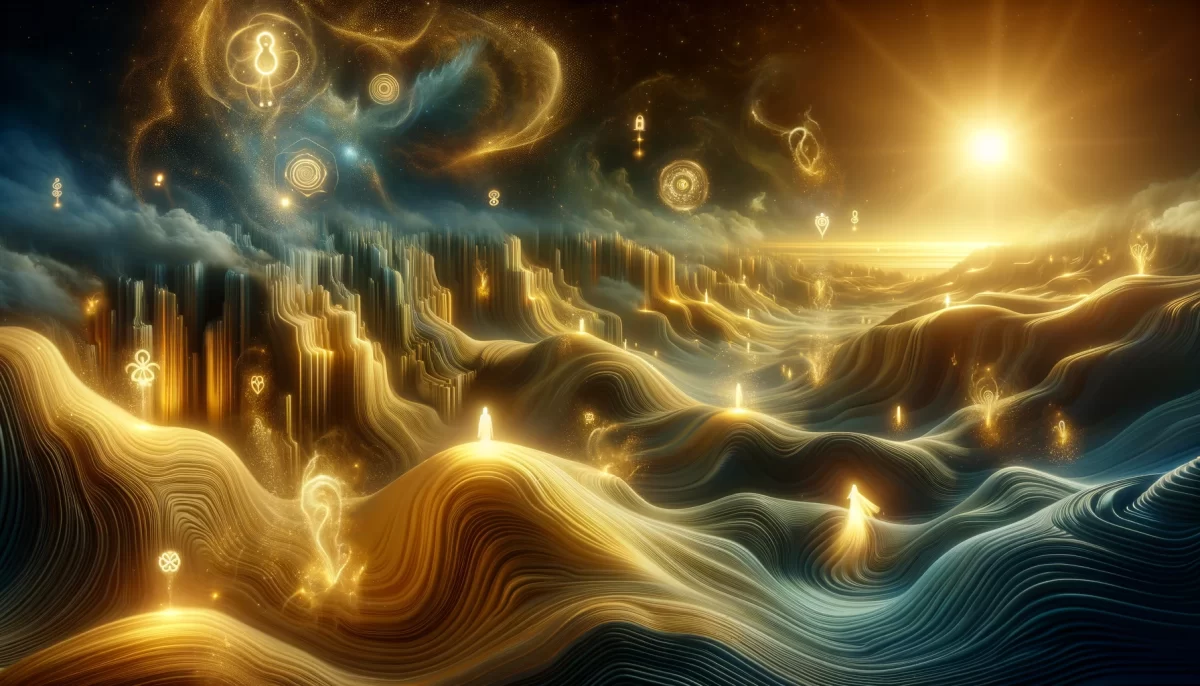
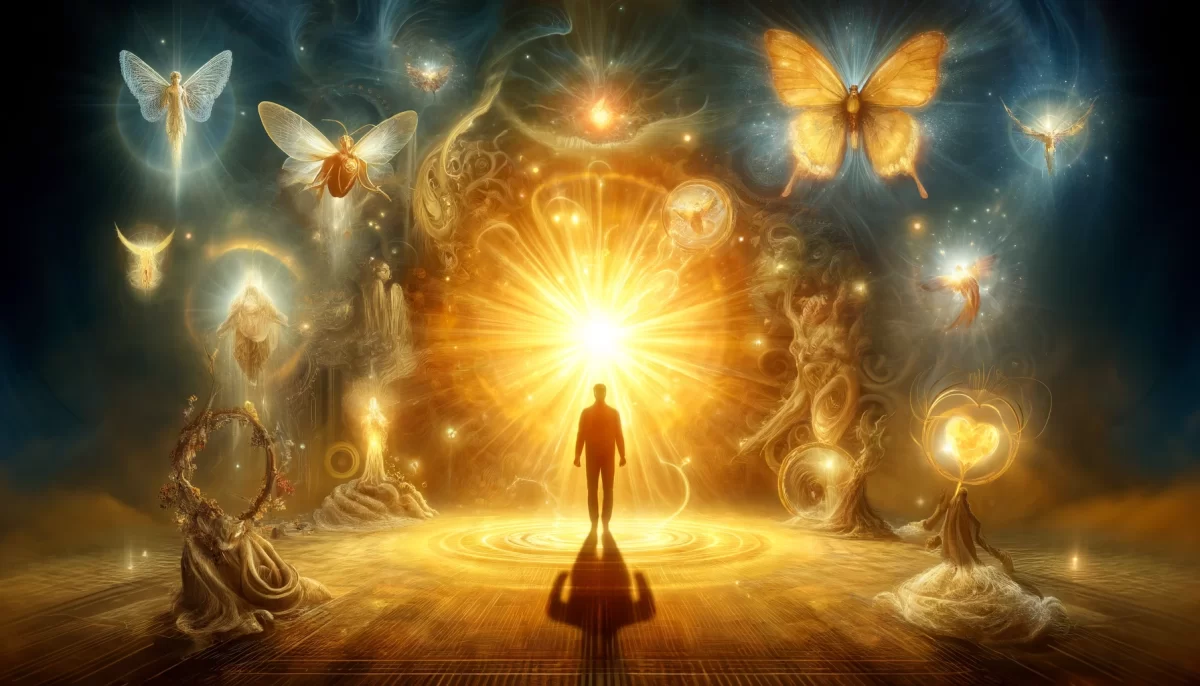
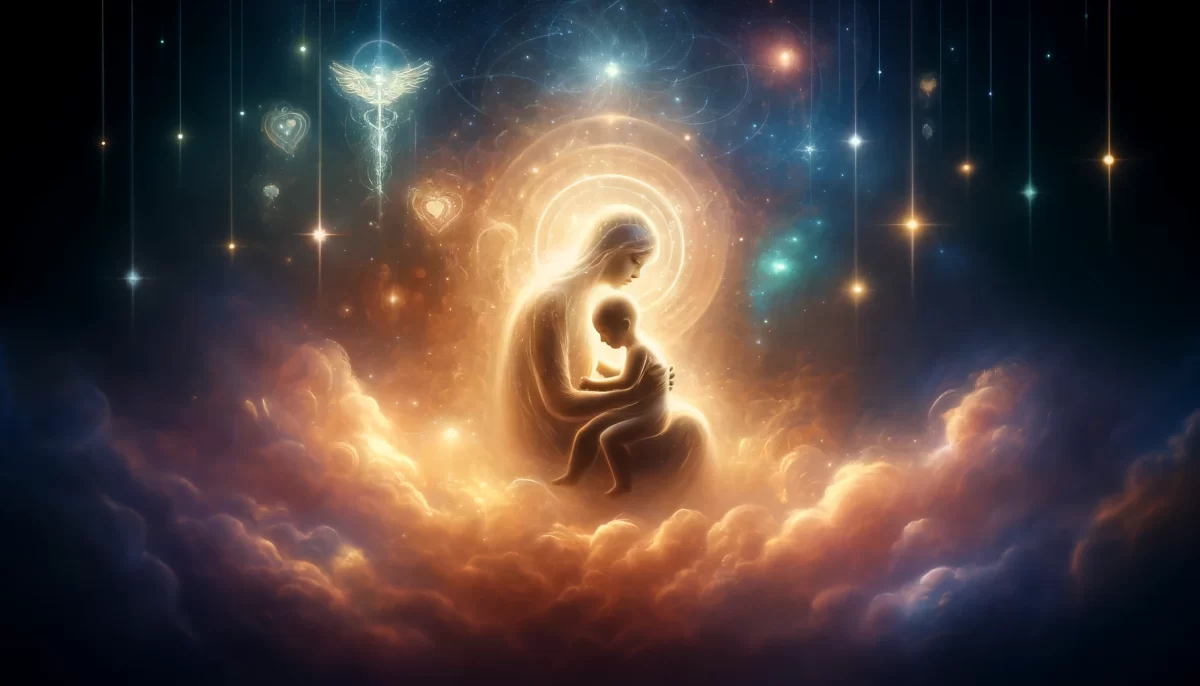
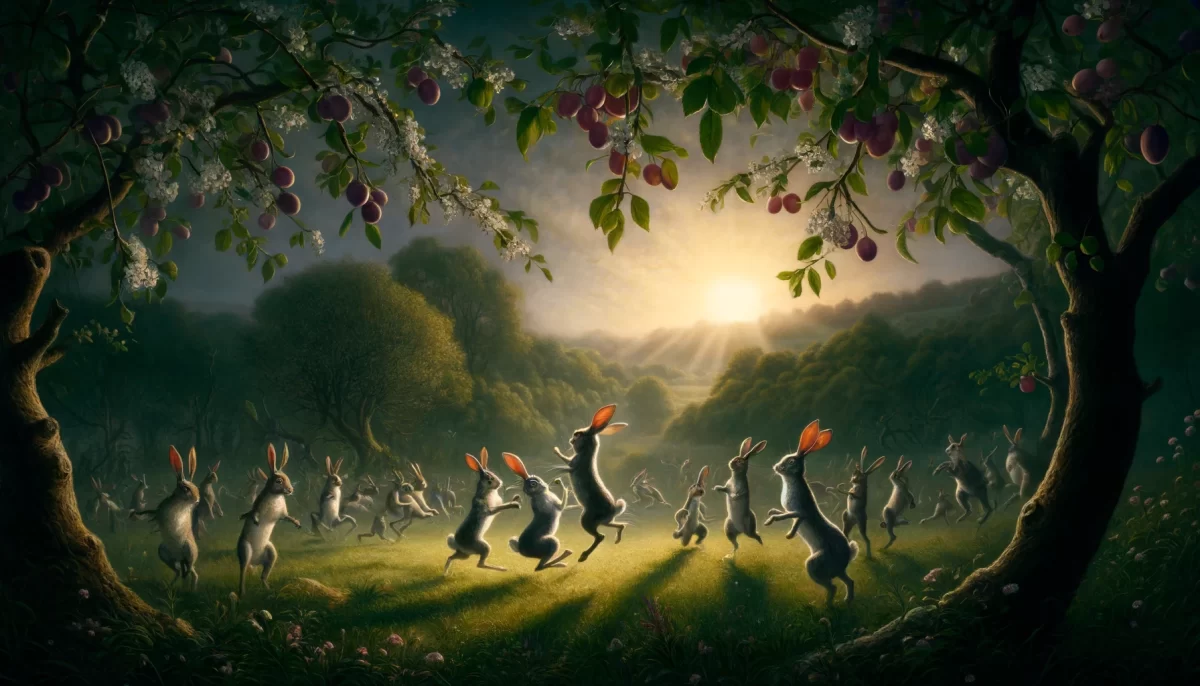
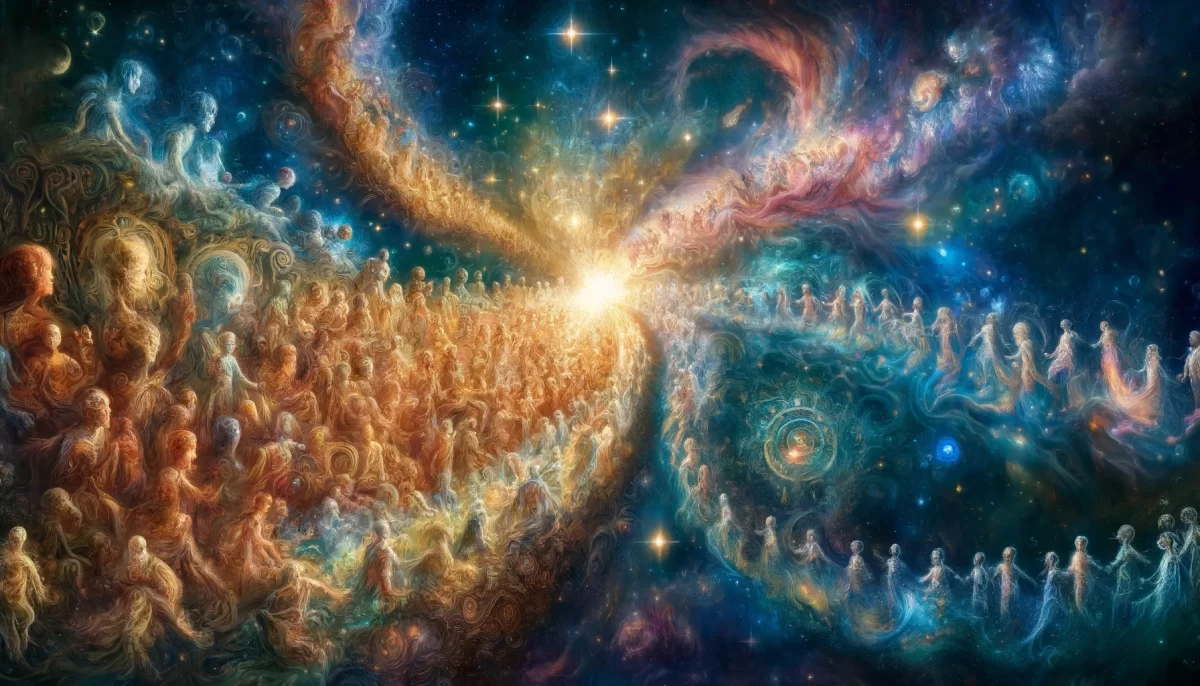
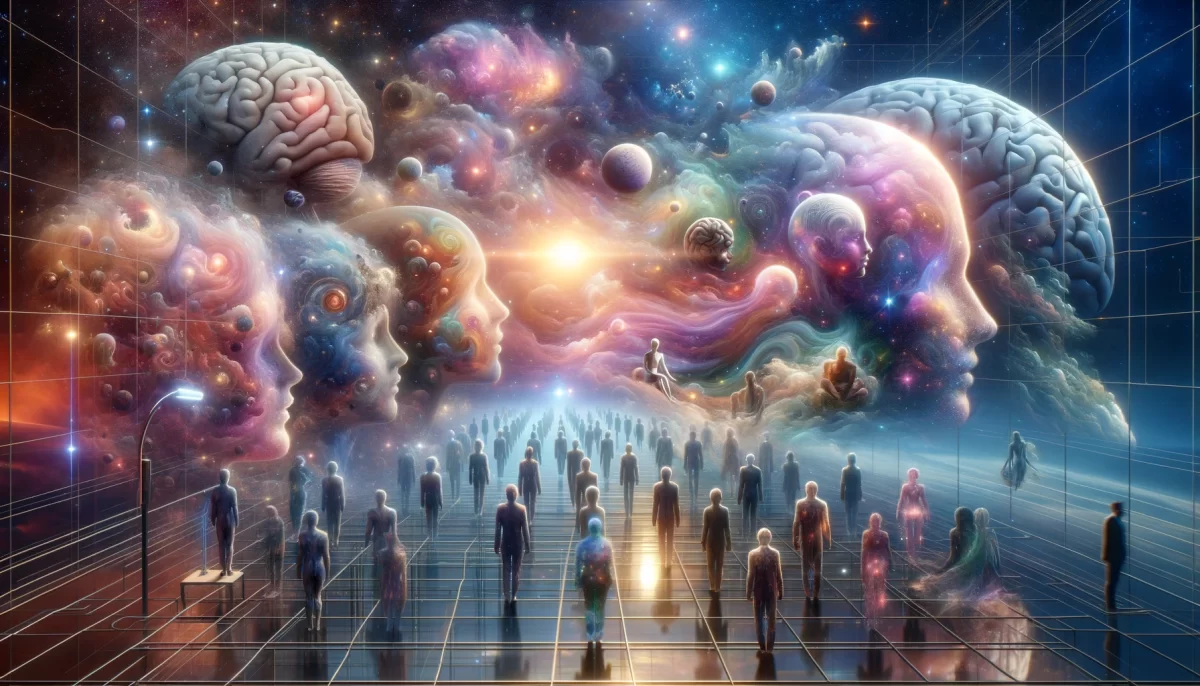
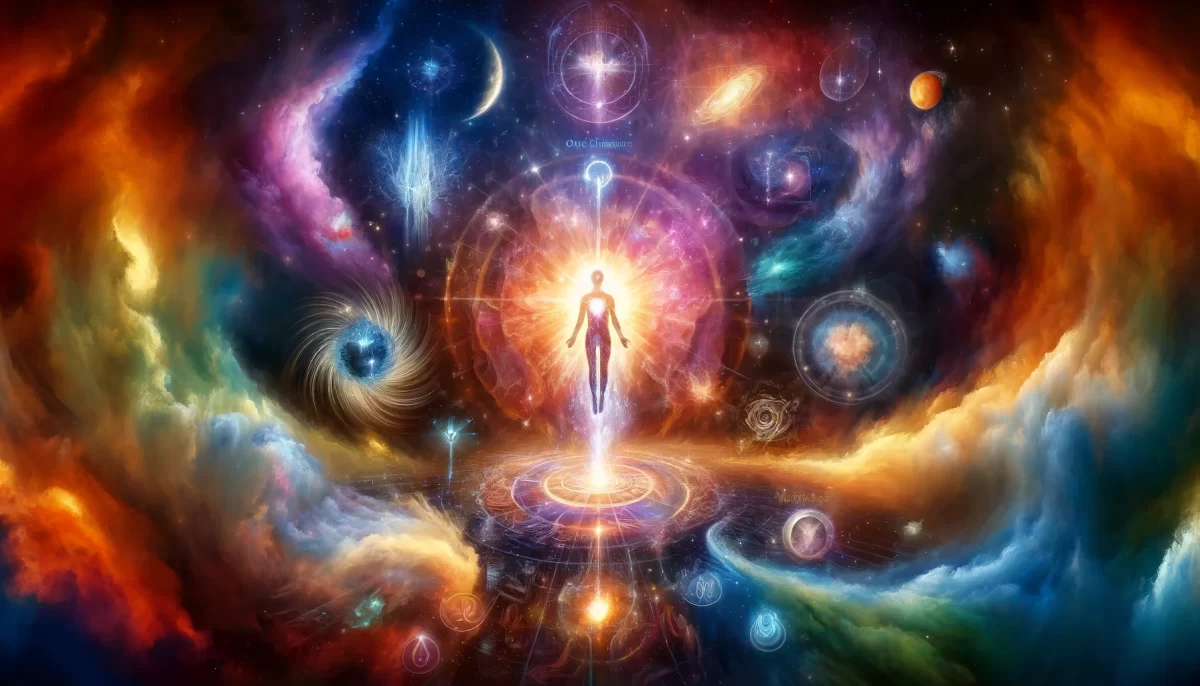

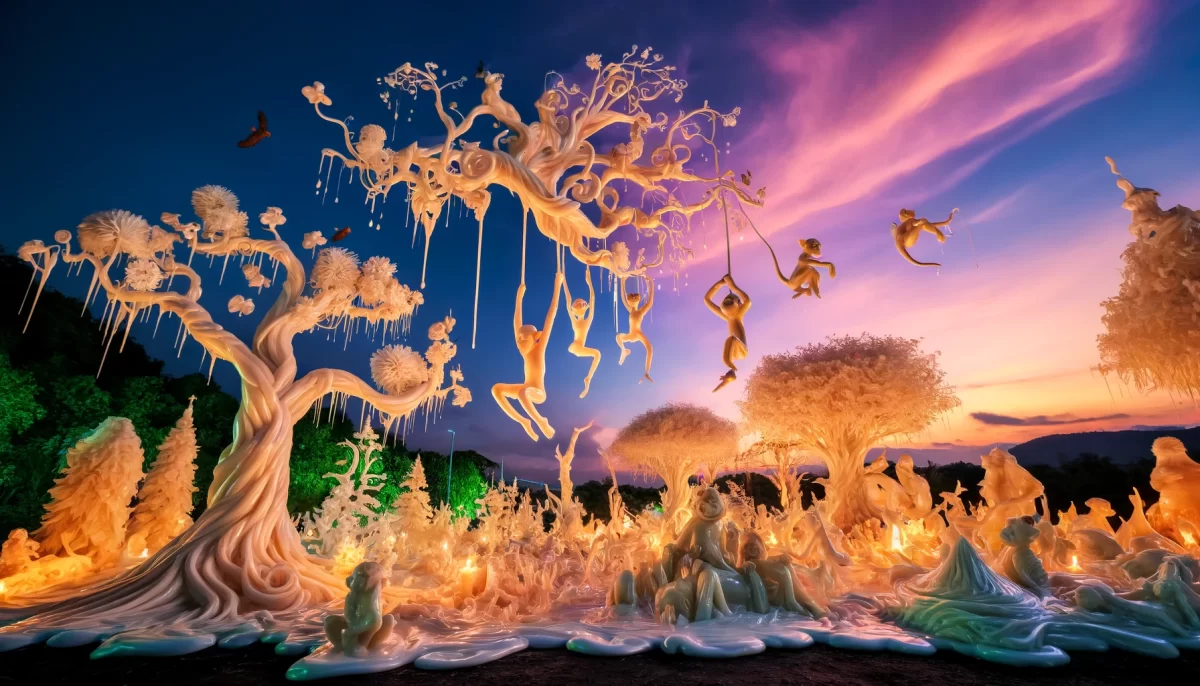
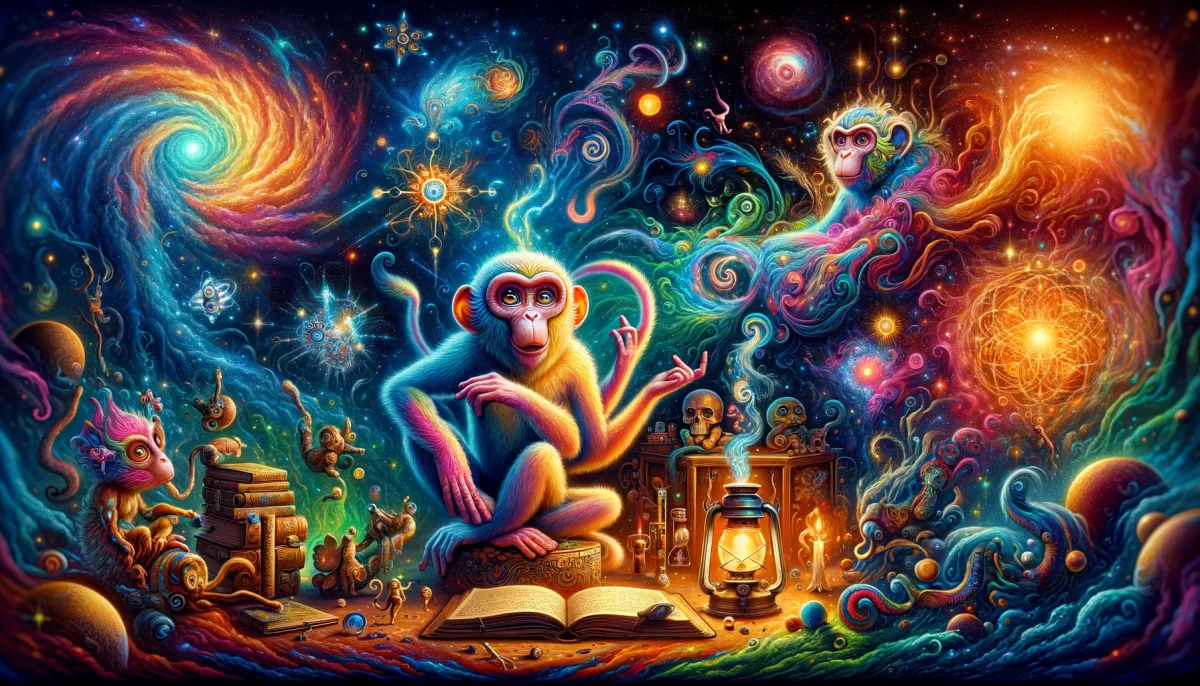
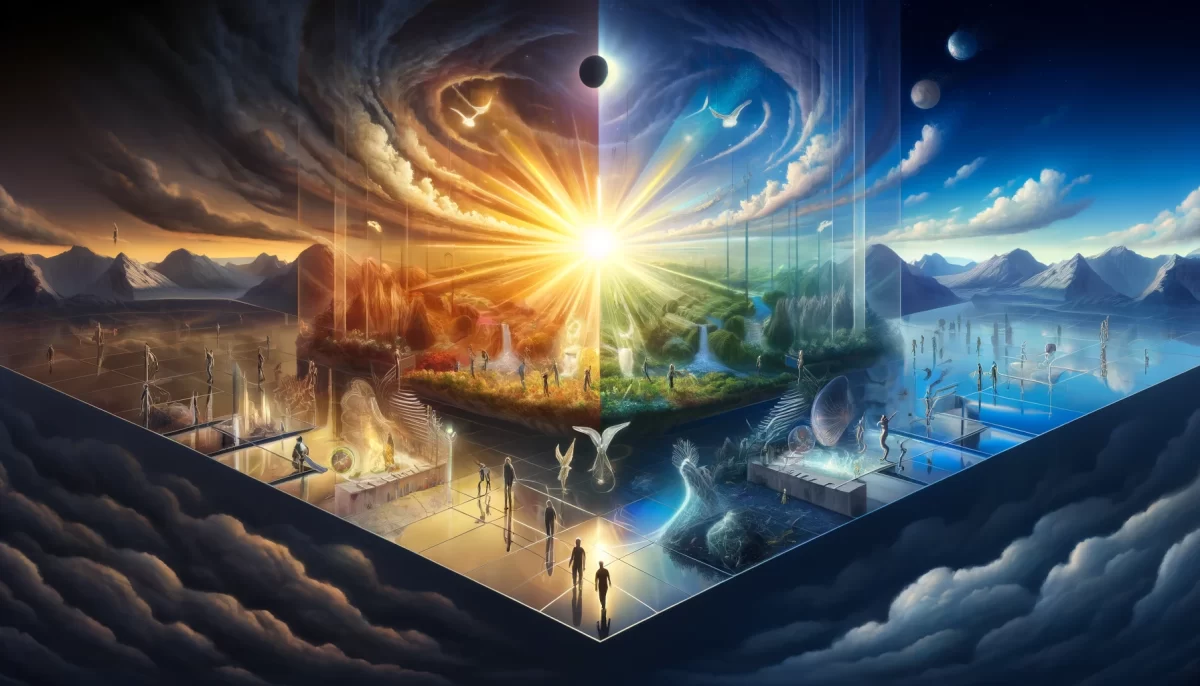

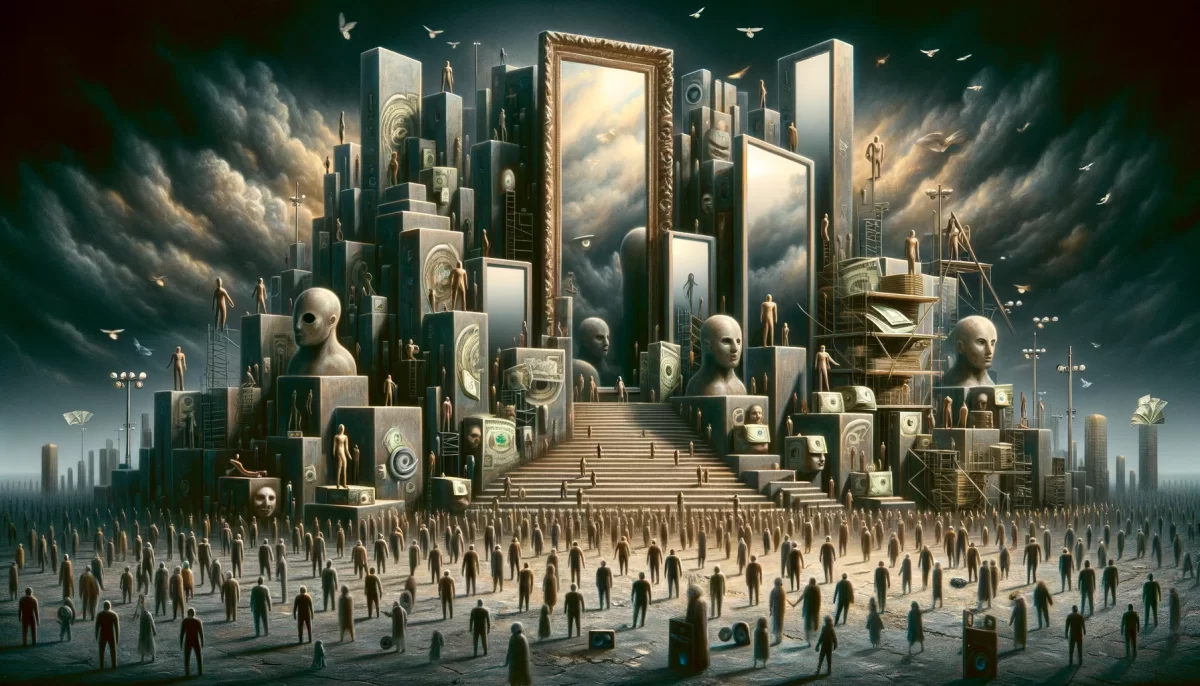

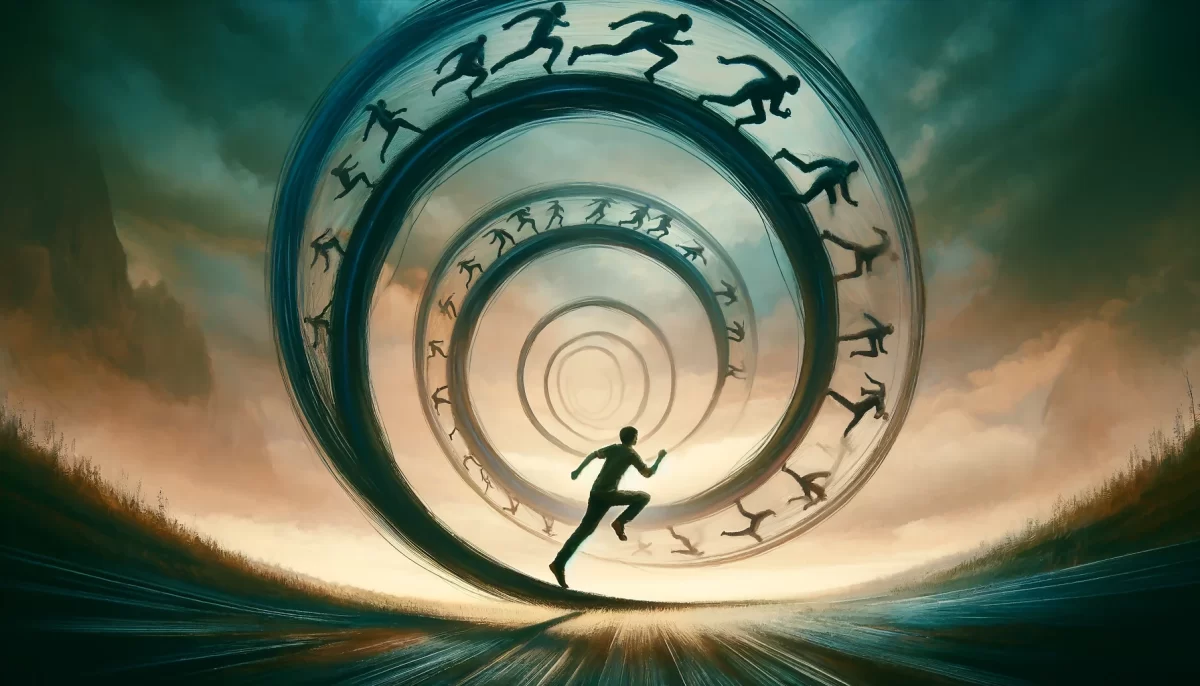
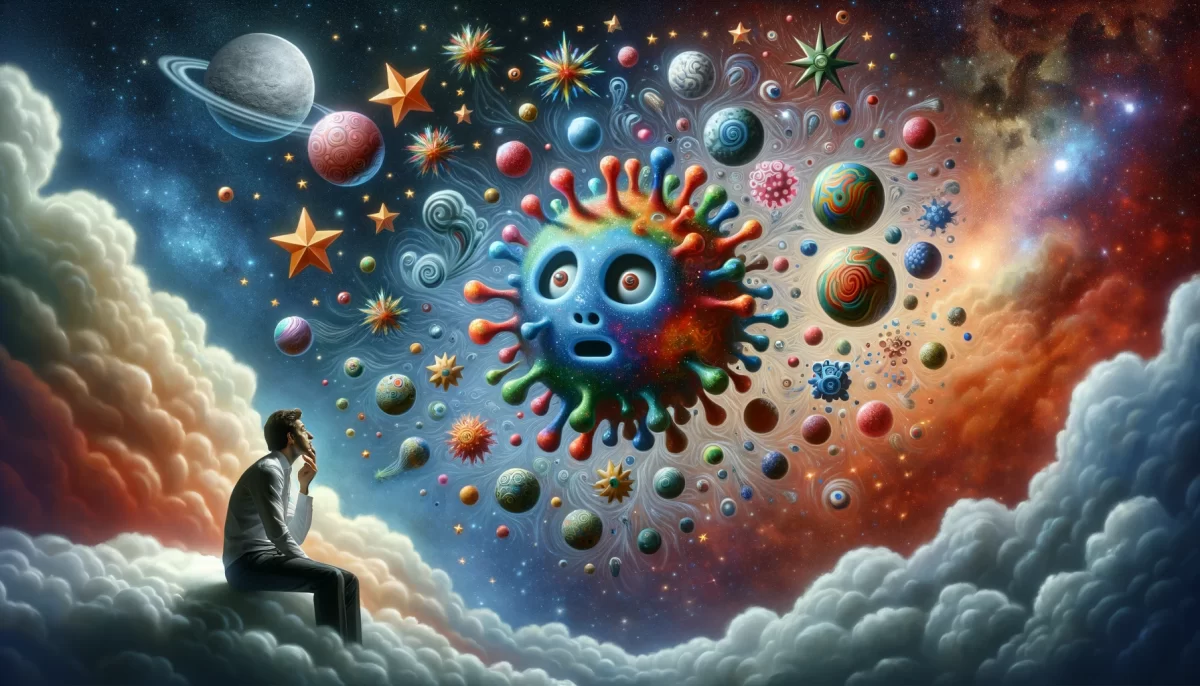



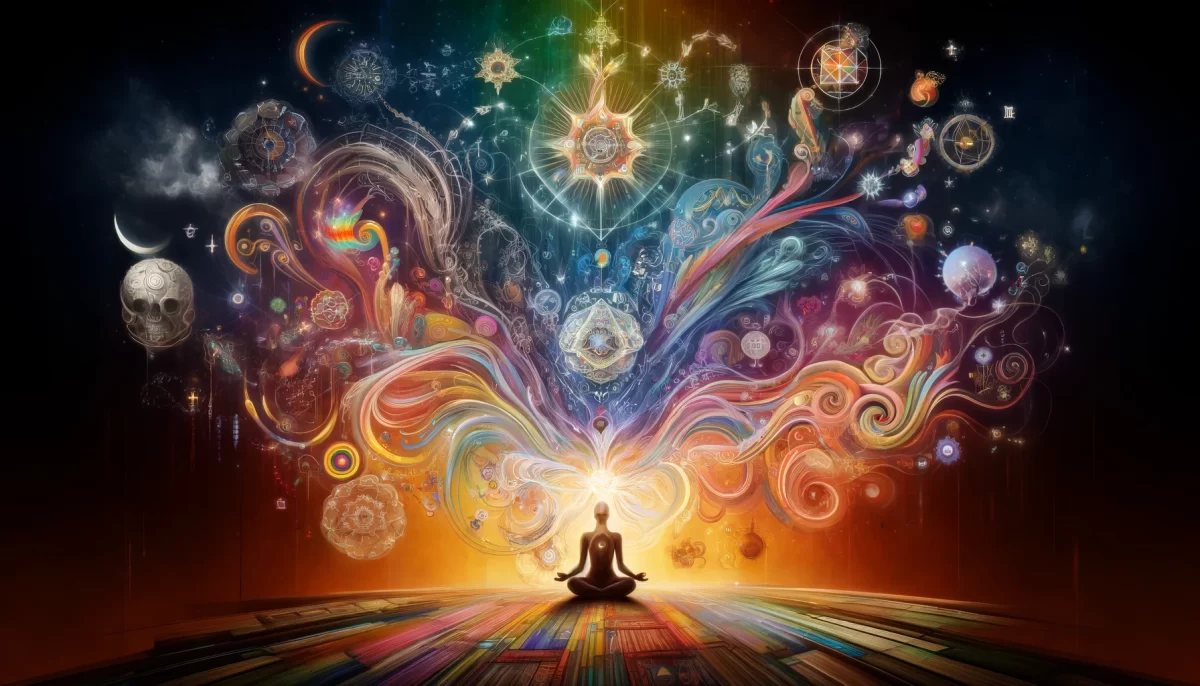
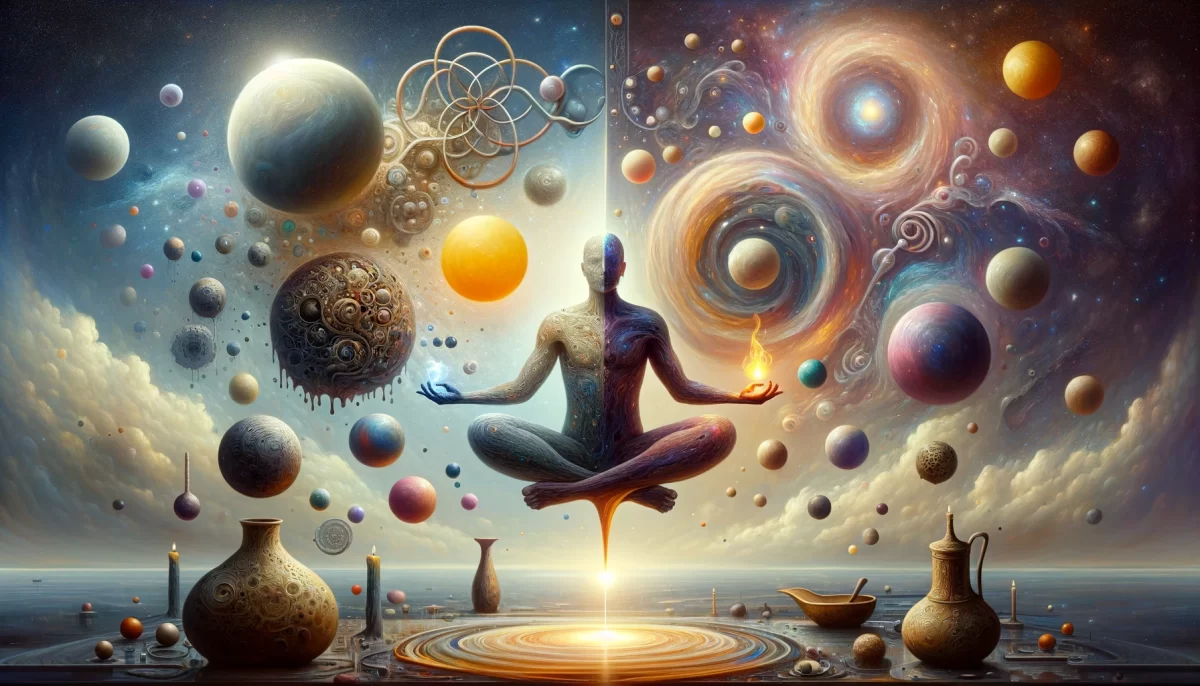

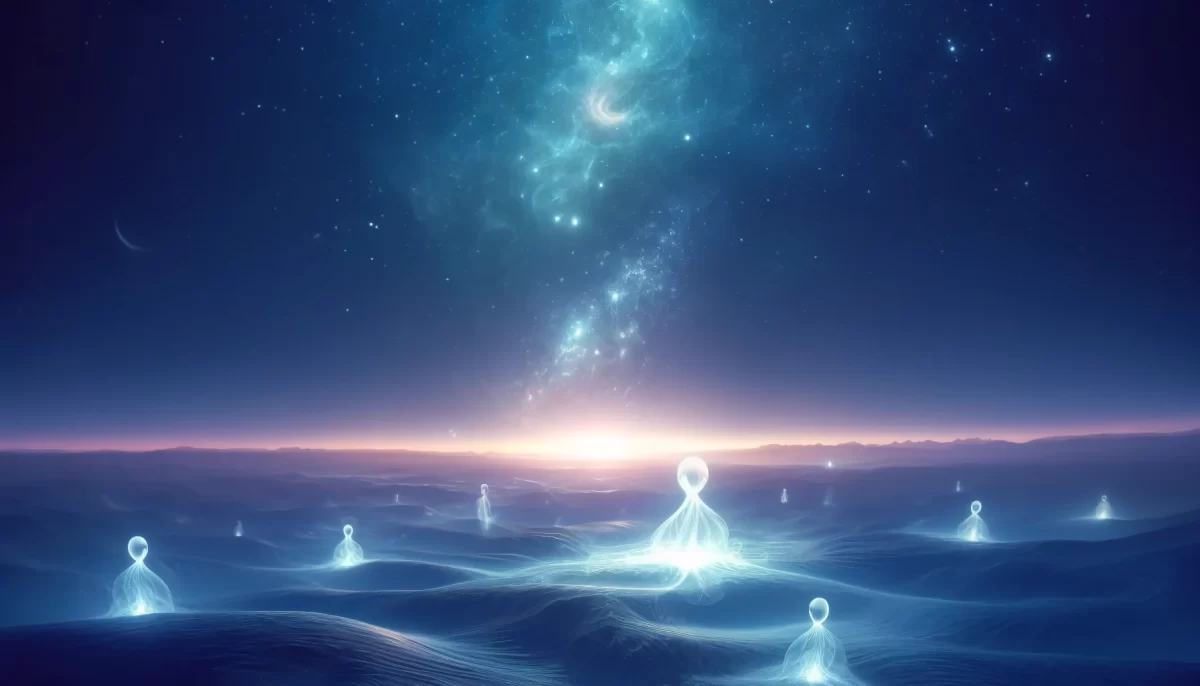
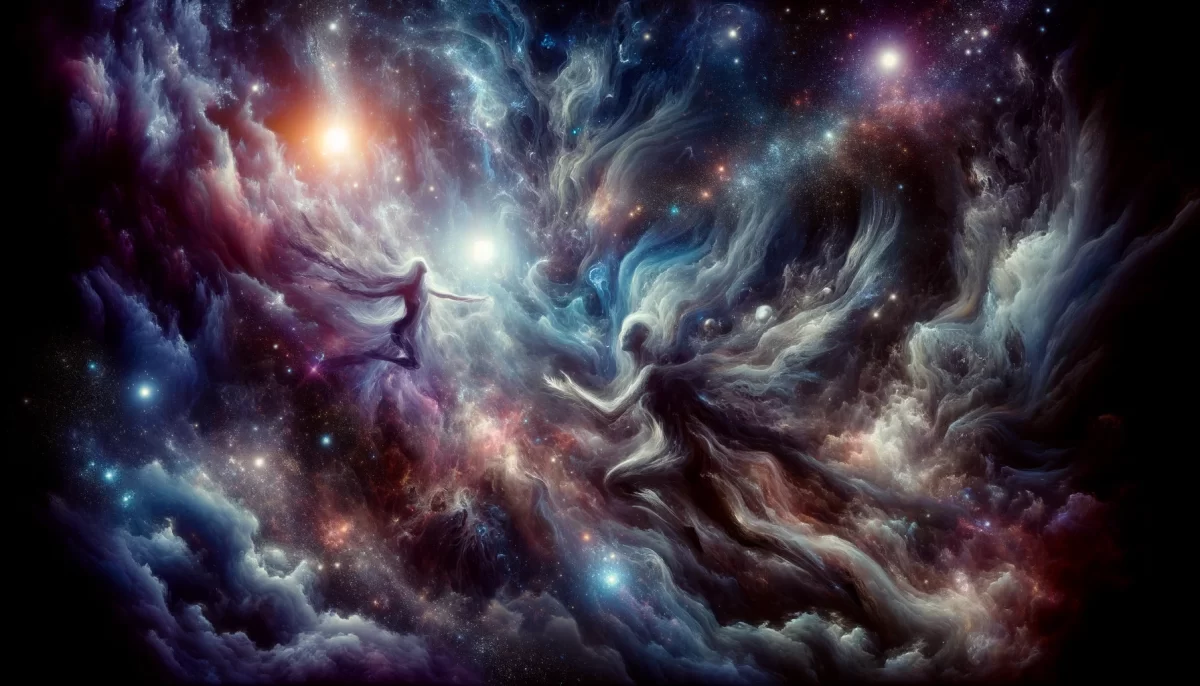


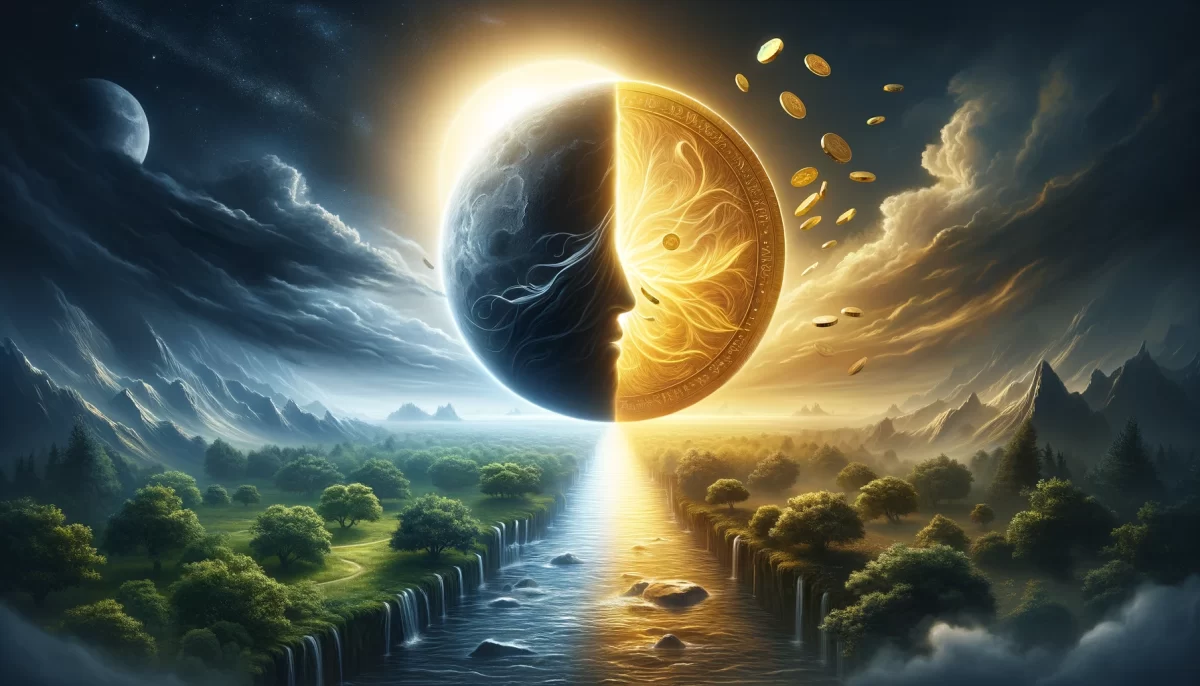
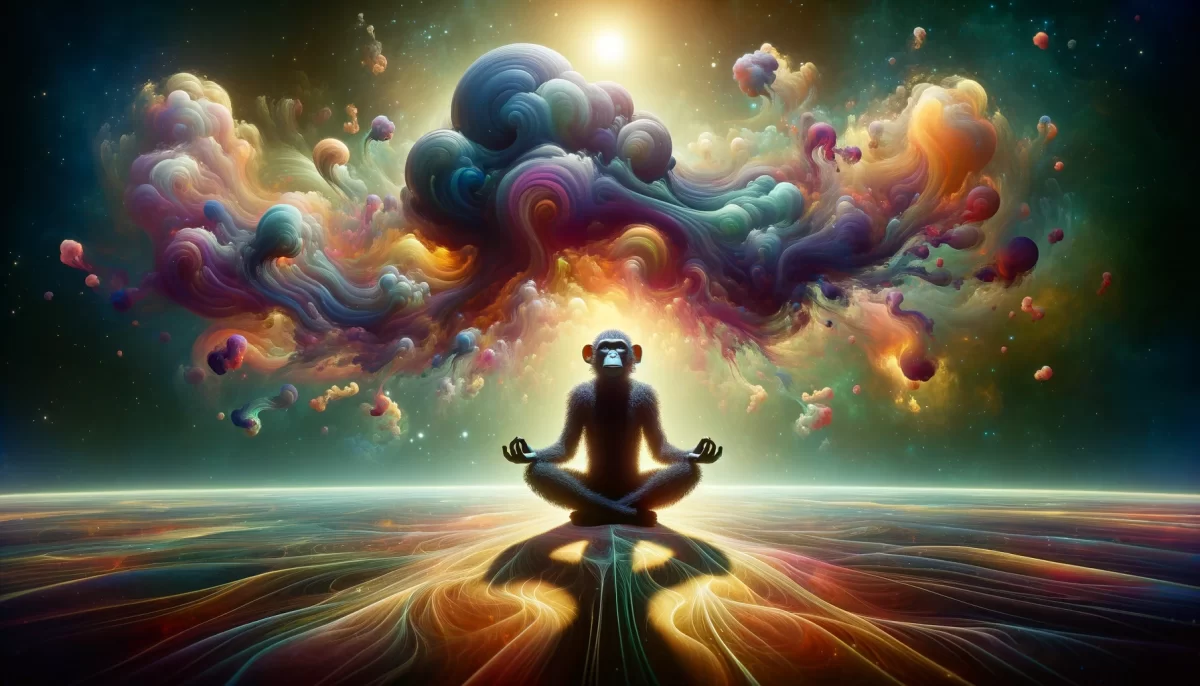
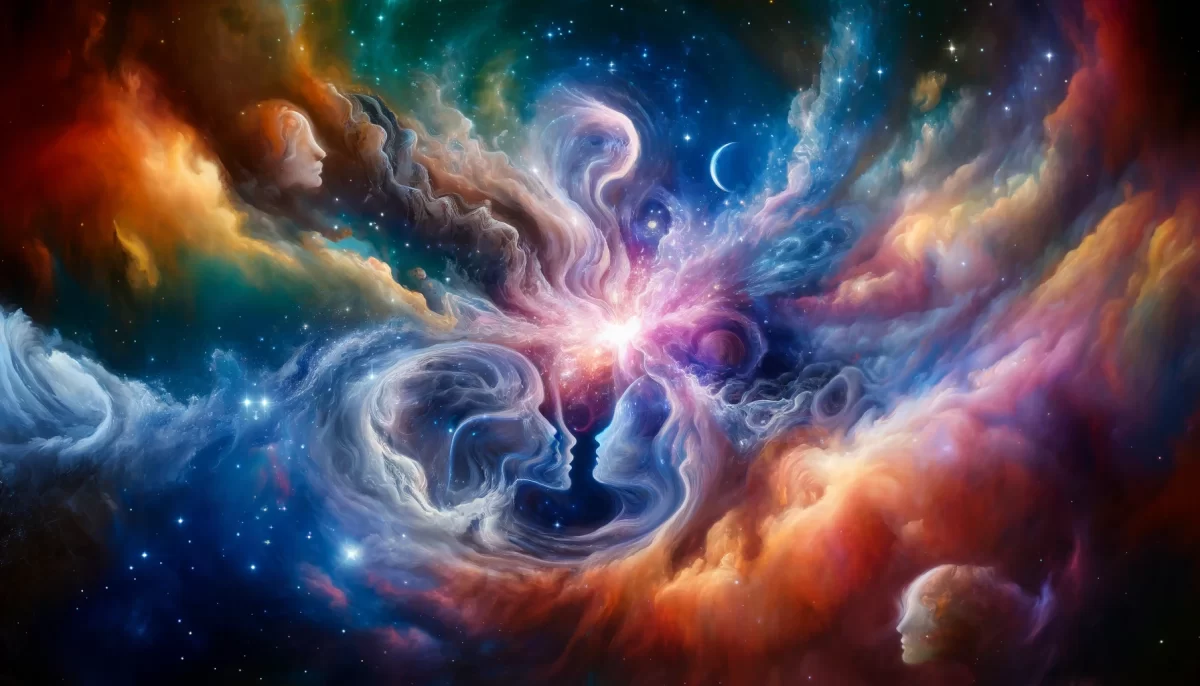
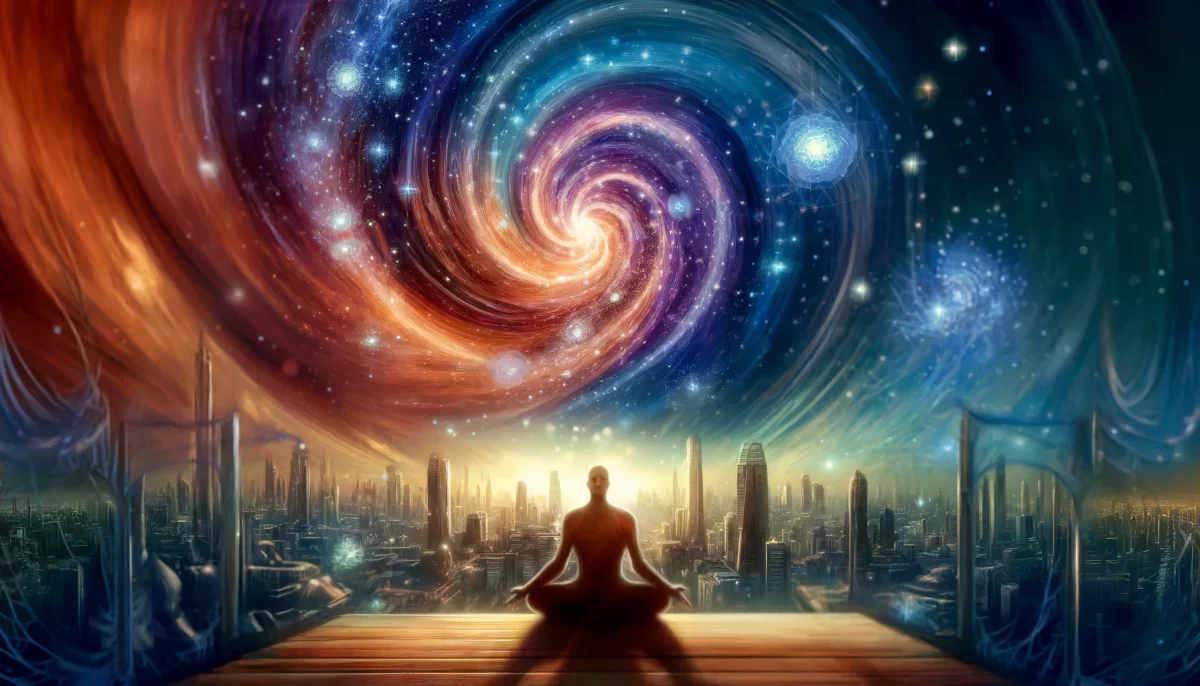
The passage “Simply Space” invites us to contemplate the nature of space and its significance in our existence. It draws a parallel between our being and the concept of space itself.
The comparison to water suggests that we have the capacity to be fluid, adaptable, and flowing, like water. However, the author chooses to identify with space, emphasizing its fundamental role in the existence of water and all other things. Without space, there would be no room for anything to exist or interact.
The passage highlights that space is not inherently empty, but rather a container of infinite potential. It has the capacity to hold and manifest anything and everything that can be imagined or created within it. This implies that our lives and experiences are shaped by the choices and actions we take within the space of possibilities.
The phrase “we perform many actions so that Space may be filled” suggests that through our thoughts, intentions, and actions, we contribute to the unfolding of existence and the filling of space with various creations, beings, and lifetimes.
However, the passage reminds us that space does not have a need to be filled. It exists simply as space, neither full nor empty, but with the limitless potential for both.
The final lines suggest that we, as beings, are also reflections of space. We have the capacity to perceive ourselves as full or empty, yet ultimately, we are simply space, imagining and experiencing different states of being.